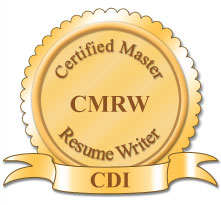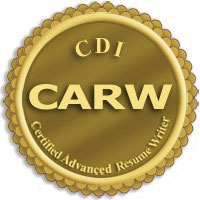In the past year as The Essay Expert, I’ve seen a lot of grammar and spelling errors. Here are some of the most common. Let’s toast to learning something new in 2011!
10. Lose vs. Loose. You lose your keys or your mind. Your belt might be loose, or you might let loose on the weekends. Click here for more: Common Spelling Mistakes: Lose vs. Loose
9. Lead vs. Led. A common resume mistake is to write “Lead” as a past tense verb. “Led” is the past tense of “lead.” If your position was in the past, start your bullet with “Led” (a great past tense power verb!)
8. Who vs. that. People are “who”; things are “that.” Don’t say, “I know a guy that can fix your car.” Say, “I know a guy who can fix your car.”
7. I vs. Me. Don’t say “My dad really loves my sister and I.”
You woul dn’t say “My dad loves I”; you would say “My dad loves me.” So why would you change “me” to “I” just because he loves your sister too? The correct sentence would be “My dad really loves my sister and me.” For more examples, see Common Grammatical Errors: Between You and Me.
dn’t say “My dad loves I”; you would say “My dad loves me.” So why would you change “me” to “I” just because he loves your sister too? The correct sentence would be “My dad really loves my sister and me.” For more examples, see Common Grammatical Errors: Between You and Me.
6. Then vs. Than. “Then” relates to time. When? Then (it rhymes)! “I got up, then made my coffee.” “Than” is a comparison word. “This paper is longer than it’s supposed to be.”
5. Affect vs. Effect. “Affect” is most often used as a verb: “How did his words affect you?” “Effect” is most often used as a noun: “What effect did his words have on you?” There are limited exceptions to each of these generalities. “Affect” can mean someone’s countenance or attitude: “His pompous affect repelled us.” And “effect” can be a verb if used to mean “implement”: “His goal was to effect change in the legal system.” If you go with “affect = verb, effect = noun,” you’ll be right 99% of the time.
4. Periods and commas placed outside quotation marks. In the U.S., commas and periods always go INSIDE the quotation marks. In many other countries, they only go inside when they are part of the quotation. I even see people putting periods and commas outside the quotation marks when they are part of the quotation! That last one I don’t understand. Here’s my article on the topic, The Quandary of Quotation Marks.
3. Comma splices. An example of a comma splice is “Last year I got great grades, I even won an award.” In this sentence, you need to replace the comma with a period or semicolon to correct it, or add an “and” after the comma. For my article on this aspect of using commas and semicolons, click here: How to Use Commas and Semicolons.
2. Apostrophes used to make plurals. The plural of brother is brothers. The plural of Smith is Smiths. When making a plural out of a noun or proper noun, there is no need for an apostrophe! Brother’s is the possessive of brother, e.g. “I covet my brother’s car.” Smith’s is the possessive of Smith, e.g., “Mr. Smith’s house is painted purple.” I talk about this issue a bit more in Why It’s Important to Write Right in the Legal Profession.
1. Its vs. It’s. This one is the hands-down winner! Today I even saw, on a blog, “Would apple sell its’ products for $10?” The rule: It’s means it is and the apostrophe creates a contraction, just as in can’t or don’t. Its is the possessive of it and does NOT take an apostrophe. And its’ is not a word. It’s simple! My article on this topic is located here: Common Spelling and Grammar Errors: It’s vs. Its
My great hope is that this list will be different for 2011. Can you help make it happen?










I am the guy who runs the site that says Its’ product for $10. Believe me I had to retype twice to get the wrong spelling now that you pointed it out! Goes to show that being lazy is as much as a crime as being uneducated!
Roy, I’m thrilled that you commented here. Thank you for reading and for learning!
These, Brenda, are my all-time bug-bears. My clients make them all the time. When I was teaching primary school, I would slip in information like this to the students, who loved “Little details”, at the end of some lessons. And I didn’t even teach English.
I like how you say ‘led’ is a strong verb. I might use it in next week’s blog… look out for it.
Rosanne, perhaps the two of us can work together to change next year’s list 🙂
Now I know why am so confused about (). I am American and my Mom was Welsh. My spelling and grammar are half and half. Ha,ha,ha
Diane
Hey,
Loved the compilation.
My personal experience has been to do with whose and who’s! I don’t know why many end up making these mistakes, there is a spell check and grammar option available in almost all writing applications… Isn’t it so?
Looking forward to reading more of your stuff!
Thank you Hajra! Unfortunately spelling and grammar checks often highlight things that are actually correct. Some people might just not pay that much attention. For our readers, “whose” is an interrogative pronoun or relative pronoun: “Whose life is it anyway?” or “I know a guy whose toes can’t wiggle” (don’t ask where I came up with that one). “Who’s” is the contraction of “who is”: “Who’s that guy with the weird toes?” or “I know a guy who’s a lion tamer.” If you can’t insert “who is” and have the sentence make sense, use “whose.”
Nice one..these are pretty common mistakes….good to see it compiled in one place
Diana you are absolutely correct about the proper way to write dates. We say July 4th, 2011, but we write July 4, 2011. More and more errors are being made in many areas, not just this one!
Ummm, why are the words “say” and “write” in quotation marks? Aren’t you emphasizing them, and not quoting someone?
You are confusing me.
Hi Andy, I think you’re responding to one of my replies to a comment? I actually put stars around those words for emphasis, but maybe they are showing up on your computer as quotation marks? My apologies! Now that I am aware of the issue I will use italics instead for emphasis!
Thanks Cameron. What a great trick! And I’m so thrilled to have a 10th grader reading my blog!
Staff can actually be singular or plural. See Rule #15 in the following article from Grammarbook.com There are other words that can also be treated as singular or plural, such as committee, family, and team.
Thanks again for your comment Kplan. I like this explanation from Wiki Answers which encourages avoidance of the issue:
Staff, for all intents and purposes, is singular. There is one staff. Definition 5.e. in Merriam-Webster’s entry allows for use as plural, however, the preferred use is singular.
Think of “staff” as the sum total of the parts. (As the pie is made up of the slices.)
PREFERRED: “Fifteen members of the staff attended the meeting.”
AVOID: “Fifteen staff attended the meeting.”
In addition, most publications that follow Associated Press guidelines will use only the singular.
When in doubt, avoid the word. Recraft the sentence using a different word, like “employees,” or “workers.”
Read more: https://wiki.answers.com/Q/Is_the_word_staff_singular_or_plural#ixzz1An0WXWmb
An excellent and much needed article in today’s world. Unfortunately, there is not enough attention paid to proper grammar and punctuation and spelling too. My parents were sticklers for this and the skills they taught, along with my teachers, have served me well in the legal community and in writing for clients. Thanks for handy Top 10. It is a pet peeve of mine when people use words like it’s vs. its and who’s vs. whose incorrectly. Every once in a while I still have to go back to the basics on words that cause trouble like affect and effect too. Well done!
Thank you Rose-Anne. I do what I can! It’s amazing how much people love to learn about these things, yet make so many errors.
LOL I know what you mean! I can’t seem to resist correcting even the people closest to me.
Thanks Leal… I will definitely consider these for 2011… along with definitely vs. definately!